.
.
Seventeen poets contribute 21 poems in this month’s edition…
.
.
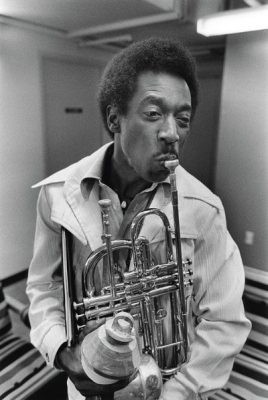
Blue Mitchell
.
.
_____
.
.
When it Begins
jazz transcends
white and black
notes don’t got eyes
for man or woman
dancing shoes just do
what they’re told
clapping hands
find the beat
without bruises
snapping fingers
tell a story
of rhythm and jive
crowded rooms
welcome everyone
sweat falls equal
to the floor
where they all
speak jazz
.
by Roger Singer
.
.
___
.
.
I am Jazz, part 2:
The Birth of a Nation
I am Jazz, as I always will be,
yet in my days of renown,
I was much more than just music.
I was an irresistible force,
on the airwaves, in the dancehalls,
in memories and occasions.
I was magnetic,
I unified, motivated, captivated,
I was America to the world.
The big bands and crooners,
the uptempo jive,
the sentimental ballads,
and the Blues in the night.
I was a beacon,
a symbol of prosperity and pride,
admired, respected,
accepted, even in Germany and Japan.
No small thing in 1945 !
And all who heard me, knew,
they recognized me.
That’s America.
That’s Jazz.
.
by Freddington
.
.
___
.
.
The Americans
We loved to walk the street, if not by night,
then in late spring evenings. We were twelve.
Homes are best apprehended in their glimpses
in the hour after supper, last hour of day.
The Hoppers’ house delighted us at once,
the backyard Stars and Stripes half-fluttering,
the smells of roasting chicken, barbecue.
(So many cabbage smells, minced beef, in Wales).
But best was Mrs. Hopper’s mid-West call,
“Hey, Joey, hey! Where is that pesky boy?”
And if not out with us, Joe was in his room,
with his music, Connie Francis, Billy Jo.
It seemed to us the purest prairie idiom,
the grace and huskiness of Yankee magic,
that musical calling in those light Welsh evenings,
“Where is that Joey? Joey, hey!”
.
by Robert Nisbet
…………………………………………….This poem was first published in Red River Review, #68, 2018
.
.
___
.
.
In a Downtown Dancehall
Rollicking, rocking, roaring denizens of the dance floor
freestyle wild flips, turns, leaps, splits, astonishing
feats of ingenuity that shape movement sans limitation,
as some long forgotten swing band blazes over the speakers,
and those on the sidelines shout encouragement
and occasional suggestions; feet glide, slide, skip, boot,
scoot, and boogie all round the hall; arms wave overhead,
drop down to sides as fingers wiggle, hips swing and sway,
and all of day’s worries and confusion slips away
in the holy fury of bodies liberated in exuberant exploration
of space, time, movement, and unfettered imagination..
.
by Michael L. Newell.
.
.
___
.
.
A Symphony of Daffodils
Music falling through time,
adrift and landing in a symphony of daffodils
being carried in a basket
A tisket, a tasket___
By Ella___
hop-skipping, hop-scotching
to pause when Miles did
Miles and his silences embellished with shadows
at the edges,
and being born of the aching hunger
Billie brought to April In Paris
She’s lamenting,
We’re echoing,
“C’mon, jump in, Satchmo,
You and your hot colors
Of the heart.”
.
by Susandale
.
.
___
.
.
Promising April
Dreams fly on the hopes of a promising April,
as laughter fills my ears, catching stars in the field of a season of promise,
are you willing to hear what I hear?
I believe in the promise of sunlight
I believe in the dreams of the crowd
I believe in a magical midnight
Rumors of hope, are seemingly proud
Snow melt, from the flood of tomorrow,
human compassion is ready to shine,
the water rises, to a flood for tomorrow,
the thaw of the snow pack is the love that is mine
I believe in the promise of sunlight,
yes I believe, in the dreams of the crowd,
you know I believe, I believe in a magical midnight,
rumors of hope, are seemingly proud, you know they’re proud.
Watching from my window, I see faces from my past,
waiting for a message from, the players in my band,
Somewhat restless, somewhat weary, shy and a bit confused,
ah but April Morning comes to me, she is tried but always true,
yes tried and always…
Dreams fly on the hopes of a promising April,
As laughter fills my ears, catching stars in the field of a season of promise,
are you willing to hear, what I hear? Are you willing to hear what I hear?
.
by Richard Beattie
.
.
___
.
.
Night Train
The house is full
and us in it. We
make room
for each
other.
No illusions
we know
time is
to touch
each other.
We hear the jazz
taking on the night
train, rocking
the moon.
.
by Victor Enns.
…………………….“Night Train,” Oscar Peterson, released 1963
.
.
___
.
.
Dizzy Blew Voodoo
He handed me a dish of salted peanuts, a bottle
of lukewarm beer, left sitting on the sink from
the night before, still I was charmed by his smile
his eyes fixed, my breathing shallow
He asked if I wanted to listen to some tunes
I demurringly complied, he put Dizzy on the hi-fi
blowing a melodious hex, putting me in a trance
He removed my dress, my bra, panties
My body succumbed as Dizzy blew
relinquishing all of what I knew
No cherry had a more bitter taste, a sharp
lasting refrain, Dizzy blew Bang Bang
engulfing me in his spell
.
by Aurora M. Lewis
.
.
___
.
.
Milk Moon, After the Concert
With the music still in my ears
and the fresh night air as a coda
I lift my eyes and …….O
…….O
………………….O
Round mouth
in a round white face
……blue-white
ready to blow stars
……………or snow
into the indigo sky
A mellow infusion
of oboe still floating
silently inside
while my raised eyes launch
……………vertigo
……release
my body into
………………………..space
.
by Phyllis Wax
……………………………………………………..Originally appeared in 2015 Wisconsin Poets’ Calendar
.
.
___
.
.
How I Spread World Peace
On a right angle of ceiling to wall,
I spy the defiant fly pushing back
gravity as a lamp-lit Monday
splashes down with steady rain
outside every Pittsburgh living room.
I consider its options
while it rests behind a shade:
a dried-out windowsill death
or veined-wing clemency.
This lone bug traces aimless
avant-garde loops around the room
like a Coltrane solo,
mesmeric, weightless.
My hand snaps
at its pass, closes
on humid air,
a palmful of notes.
.
by Fred Shaw
.…………………………………………...originally published in the Carlow Journal
.
.
___
.
.
I Tell Him it’s OK
My dog
is a jazz dog
after listening to Tal Farlow
and Eddie Costa
he is not much impressed with my playing
keeps looking at his watch
until I finish
after a couple hours
when I put the guitar down
he jumps on my lap
and loves my silent hands
.
by John Stupp
.
.
___
.
.
Piano Lessons
Considering the end occurred
here
I wish I remembered more details…
wall-to-wall carpeting, stringy houseplants
knick-knacks, caged bird
Mrs. Modlin’s piano
for my humid restless brain
sitting was torture
and anyway
you ain’t s’posed to be playin that
unless you was a fruit
you know that
boys like us play sports
and I did – smeared them
every chance I got
go to hell, man
Mrs. Modlin’s piano bench
couldn’t hold me –
tired of the monotonous
wondering about the little star
over and over
is that all?
Who is Monk, Brubeck,
Hancock, Evans, Tyner?
who cares?
I heard only white
noise
and Mom was too tired to fight
.
by Douglas Malan
.
.
___
.
.
Ode to Horace Silver
How many times
will I hear Nutville
or
Senor Blues
and not be moved
nay bruised
by the experience?
and so carry the marks
of each encounter
like a ship’s pilot
in the engine room
the black eye
the cut lip
the swollen knuckles
from wrench and valve
the gears
the oil
the heat only a man can handle
somewhere there is a hatch and stairway
on this vessel
I know
somewhere a moon
somewhere a breeze offshore
but here
I am anchored
to the rhythm section
below deck
to the trumpet
tenor
and piano
pushing gauges until the gaskets burst
turning a great crankshaft
over and over in the soft mud
.
by John Stupp
.
.
___
.
.
I’ll Be Seeing You
Overnight,
the old familiar places
and faces
disappeared.
Under a moonlit sky,
reminiscence
and imagination
roamed these streets.
Bohemian biorhythms
sleepwalked,
seeking
for what was lost.
By a small café,
now shuttered and locked,
the Ghost of Jazz
sang Lady Day’s lament.
For a moment,
the morning sun
broke through
the overcast.
An old musician
hummed Lady Day’s lament,
carried his saxophone
inside its battered case,
disappeared downstairs
for the uptown A.
.
by Patricia Carragon
.
.
___
.
.
Additional Parking for Big Pete’s Blues Wagon
In the glide-by scenery of June,
one steel sign hangs,
to a heavy sag of chain
stretched across cement-stuffed posts,
its seven purple words glistening
with wind-blown mist.
Stuck on this drizzly drive
down Route 3, with only pop and talk
on the rental’s radio,
I glance at a place where summer
trees once danced and swayed
before the crowds gave out.
Here, bands rode twanging
Delta grooves, gutbucket and gospel
into the call-and-response of soulful release,
buckling hearts, rattling windows.
Later on, blue notes would steam
from a boss horn’s bottomless bell
until the walls flaked mojo, and left
memories, now curled yellow,
fingers keeping time, tapping
a night away on wobbly, beer-sticky tables.
Big Pete’s
locked doors and gravel lot,
wrung-dry of its music.
.
by Fred Shaw
.
……………………………………………………..originally published in Briar Cliff Review
.
.
___
.
.
Performance Day
The beard of the young musician
curled out of the window
and into the sky.
“You’ll need to braid it today,”
whispered his wife
into his ear as he lay in bed
listening to Brubeck
in his head,
her breath rippling
the current of dissonances
and modal timbres
he will improvise upon
later that evening.
“Music is the pacifier of the universe,”
he said, “taming those beasts
in the lion’s cage
so we may ride its consonance
beyond our intuitive concerns.”
Melodies passed through the room,
harmonies saturated the air,
his saxophone will feast
upon the music stand
as his beard
camouflages the embouchure
that will escort the audience
beyond themselves.
“Good luck, sax man,” she sighed,
but he just lay there with a smile,
fingering patterns on his invisible horn
and licking his chops.
.
by Michael Keshigian
.
.
___
.
.
Saxophone Days Of The Week
Monday, i saw her, she had a
…………Body like Coltrane’s
……………Sax
Tuesday, she walked along the Common
…………………..A Love
Supreme
Wednesday, her song was the
Sound. ……………..Sonny Rollins
…………………Played on Williamsburgh
………………………………..Bridge
Thursday, Wayne Shorter
…………………………………Showed her
Jesus in her
………..Footsteps
Friday,
Pharoah Sanders pressed the keys
Of his horn
As i would’ve pressed her
………………………………………Body
Saturday,
She charmed me
Like Branford Marsalis
Would
Sunday
Her Soprano cries sounded
Better than Cannonball Adderly
Ever could
.
by Erren Kelly
.
.
___
.
.
In Appreciation To A Lost Pirated Cd Copy Of Kings Of Jazz, Vol. 1
I.
…..Inside:
…..Art Blakey, Bill Evans, Charles Mingus,
…..Eric Dolphy, John Coltrane, Randy
…..Weston, Roland Kirk, Roy Haynes
…..& The Jazz Crusaders ————–
…………………………………………Jazz Crusaders,
…..they were all jazz crusaders.
.
II.
There’s gold in them sidewalks of Recto;
one can even learn culture —
…………………………………………thru the music
that finds us —
…………………………..w/o spending a lot of money.
III.
Being rare is synonymous to being lost.
.
…..— that is the problem if you loan
………..your records to people you know
………..whose got a good ear for
………..the same kind of stuff.
.
by Anggo Genorga
.
.
___
.
.
Vultures Picking
rattle the bones
out of my flesh
like vultures
picking sharp
tearing hard
I feel
the jazz
smacking at
My inner soul
like pins
and needles
scratching
making pain
as I tap
my dusty
shoes to a beat
as music
thumps my ears
like fat
elephant feet
pounding
walking over
pressing thick
as storm clouds
spit out
raindrops onto
my face
while I’m
looking up
waiting for
the sounds
to wash me
clean into
the next
song
.
by Roger Singer
.
.
___
.
.
The Cypher
The prophet
……………………………The Sun
The Ra
………The truth bearer
…….The herald of ancient futures
………………………………………………….The cypher
Three hundred and sixty degrees of truth
Be real
Be real
Be real
Space is here to stay and
You can’t run away.
.
by Alex Louloudis
.
.
___
.
.
Suddenly on a Backstreet
A trumpet from a nearby building soars
with wild brilliance of tone, swoops
down, down, down into lowest reaches
of its range, dances higher once again
in a playful pattern of two steps higher,
one lower, two more up the staircase,
then veers into wild leaps, bounding
throughout the range of trumpet
possibilities, the tone pure, harsh,
guttural, celebratory, grieving,
notes slow, soft, barely audible, then
blaring, rising higher and higher with unfettered
volume and passion; finally, the music
stops mid-note; looking up, I discover a man
of indeterminate age in a ragged plaid shirt,
horn in hand, in a window three stories
above me, eyes lost in the distance, face pressed
against panes, wearing an expression of loss,
as he watches a troupe of lads shouting
and laughing in a celebration of youth’s freedom.
As I walk away, I hear the tears of a Harmon mute,
barely audible, whispering “Round Midnight.”
I glance behind me to discover the trumpeter
has opened his window to bestow his song
upon barren streets as shadows envelop his world.
.
by Michael L. Newell
.
.
.
______
.
.
.

Roger Singer is a prolific and accomplished contributing poet who we have proudly published for many years. Singer has had almost 800 poems published in magazines, periodicals and online journals — 400 of which are jazz poems — and has recently self-published a Kindle edition of his book of jazz poetry called Poetic Jazz.
“Jazz poetry flows out with such ease,” Singer writes on his blog. “The people and places, the alleys and sawdust jazz clubs. The stories that bring jazz alive with horns and voices, from sadness and grief to highs at midnight and love gone wrong. The jazz is within us all. Find your poem and feel the music.”
.
.
___
.
.
Freddington works as a shipper/receiver in Toronto, Canada, and has been a lifelong jazz fan ever since he was “corrupted” as a teenager by Charles Mingus’ “Wednesday Night Prayer Meeting.”
.
.
___
.
.
.
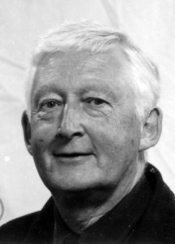
.
Robert Nisbet.is a Welsh poet whose work has been published in roughly equal measures in Britain and the USA, in the latter case quite regularly in. San Pedro River Review, Red .River Review. and. Panoply, which made him one of its Editor’s Choice Featured Poets in their Fall 2017 issue
.
.
___
.
.

.
Susandale’s poems and fiction are on WestWard Quarterly, Mad Swirl, Penman Review, The Voices Project, and Jerry Jazz Musician. In 2007, she won the grand prize for poetry from Oneswan. The Spaces Among Spaces from languageandculture.org has been on the internet. Bending the Spaces of Time from Barometric Pressure is on the internet now.
.
.
___
.
.

.
Richard Beattie is a writer, journalist, composer and lyricist. Beattie grew up in New York where he was in musical theater from an early age. He learned his trade on famous streets; Broadway, Madison Avenue, and Bleeker Street. In 1978, he moved to Poet’s Row in the Capitol Hill neighborhood of Denver, where he thrived while working with artists from jazz bands. He is currently a reporter and news anchor at KVOR in Colorado Springs, and curator for the Library of Creative Harvest.
.
.
___
.
.

.
Victor Enns reads and writes poetry and fiction. He lives in Gimli, Manitoba, Canada. His first jazz show was Count Basie, with the Count still at the piano, at the old Civic Auditorium in Winnipeg. Some of these poems are appearing in a new book called Love & Surgery, published September 2019, by Radiant Press in Regina, Saskatchewan. Afghanistan Confessions, poems in the voice of Canadian soldiers, was published in 2014, boy in 2012. Lucky Man (2005) was nominated for the McNally Robinson Manitoba Book of the Year award.
His poems have appeared in Canadian publications and including Rattle (print) and Shot Glass Journal (online) in the U.S. His most memorable performance this century was a mainly Mingus show led by Toronto bassist David Young (originally from Winnipeg) with an eight piece band at the Rex in Toronto.
.
.
___
.
.

.
Aurora M. Lewis is a retiree. In her 50’s she received a Certificate in Creative Writing-General Studies, with honors from UCLA. Her poems, short stories, and nonfiction have been accepted by.The Literary Hatchet, Gemini Magazine, Persimmon Tree, Jerry Jazz Musician, and The Blue Nib, to name only a few. Aurora’s poetry was nominated by Gemini Magazine in 2010 for Best of the Net and a Pushcart Prize in 2011. The Literary Hatchet has nominated her for the current Pushcart Prize.
.
.
.
___
.
.

Phyllis Wax writes in Milwaukee on a bluff overlooking Lake Michigan. Among the anthologies and journals in which her poetry has appeared are: The Widows’ Handbook, Birdsong, Spillway, Peacock Journal, Surreal Poetics, Naugatuck River Review, New Verse News, Portside, and Star 82 Review. A Best of the Net and Pushcart Prize nominee, she has read in coffee houses, bars, libraries and on the radio. Her work has been exhibited with art quilts and weavings in a variety of venues around the state of Wisconsin as part of four poet/fiber artist collaborations.
She can be reached at: [email protected]
.
.
___
.
.

.
Fred Shaw is a graduate of the University of Pittsburgh, and Carlow University, where he received his MFA. He teaches writing and literature at Point Park University and Carlow University in Pittsburgh, PA. His debut full-length collection, Scraping Away, is forthcoming from CavanKerry Press. A book reviewer and Poetry Editor for Pittsburgh Quarterly, his poem, “Argot,” is featured in the 2018 full-length documentary, Eating & Working & Eating & Working by filmmaker David Bernabo. The film focuses on the lives of local service-industry workers. He lives in Pittsburgh with his wife and rescued hound dog.
.
.
___
.
.

.
John Stupp’s third poetry collection.Pawleys Island was published in 2017 by Finishing Line Press. His manuscript Summer Job won the 2017 Cathy Smith Bowers Poetry Prize and will be published in 2018 by Main Street Rag. He lives near Pittsburgh, Pennsylvania. From 1975-1985 he worked professionally as a mediocre jazz guitarist.
.
.
___
.
.
Michael L. Newell is a retired English/Theatre teacher who lived abroad for more than two decades. He now lives on the Oregon coast. He has recently had poems in. Ship of Fools, Current, and. Verse-Virtual.
.
.
.
___
.
.

Patricia Carragon’s recent publications include Bear Creek Haiku, First Literary Review-East, A Gathering of the Tribes, The Café Review, Muddy River Poetry Review, Poetrybay, and Krytyka Literacka. Her latest books are The Cupcake Chronicles (Poets Wear Prada) and Innocence (Finishing Line Press). Patricia hosts the Brooklyn-based Brownstone Poets and is the editor-in-chief of its annual anthology. She is an executive editor for Home Planet News Online.
.
.
___
.
.
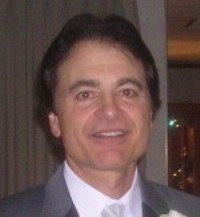
.
Michael Keshigian’s eleventh poetry collection, Inexplicable was released in November, 2016 by Black Poppy Review. Other published books and chapbooks:Beyond,Dark Edges,Eagle’s Perch,Wildflowers,Jazz Face, Warm Summer Memories, Silent Poems, Seeking Solace, Dwindling Knight, Translucent View. Published in numerous national and international journals, he is a 6- time Pushcart Prize and 2-time Best Of The Net nominee. His poetry cycle,Lunar Images, set for Clarinet, Piano, Narrator, was premiered at Del Mar College in Texas. Subsequent performances occurred in Boston (Berklee College) and Moleto, Italy. .Winter Moon, a poem set for Soprano and Piano, premiered in Boston.…(michaelkeshigian.com).
.
.
___
.
.
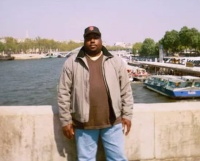
.
Erren Kelly is a two-time Pushcart nominated poet from Boston whose work has appeared in 300 publications (print and online), including Hiram Poetry Review, Mudfish, Poetry Magazine, Ceremony, Cacti Fur, Bitterzoet, Cactus Heart, Similar Peaks, Gloom Cupboard, .and .Poetry Salzburg.
.
.
___
.
.

.
Anggo Genorga is from the Philippines and works as a manager of a local band called Wonder Woman’s Electric Bra. Recent writings can be found at Horror Sleaze Trash, Devote, Duane’s Poetree, Outlaw Poetry Network, Paper And Ink Zine, Red Flag Poetry, In Between Hangovers, Dubai Poetics, The Odd Magazine and Walking Is Still Honest Poetry Press. Also at Empty Mirror, Mad Swirl, Guide To Kulchur Creative Journal, Silver Birch Press Bukowski Anthology and Verses Typhoon Yolanda, a book for benefit published by Meritage Press and the now defunct The Screech Owl and Dead Snakes.
.
.
___
.
.

.
Alex Louloudis is a NYC-based Greek drummer, composer, poet, percussionist, and a graduate from The New School for Jazz and Contemporary Music. Mr. Louloudis has performed all over the USA and Europe and has released various albums of his original music. He has studied and performed with music luminaries such as: Michael Carvin, Oliver Lake, Reggie Workman to name a few.
.
.
.









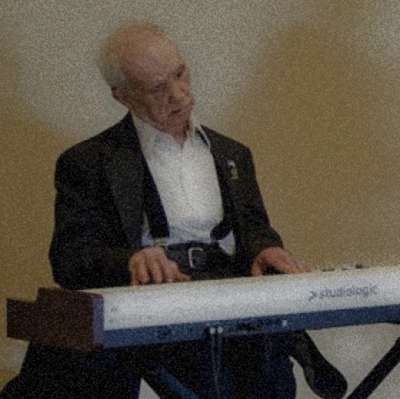






























SOME OBSERVATIONS ON THIS SET OF POEMS
Roger Singer’s “When It Begins” has a finely tuned rhythm, a carefully chosen and highly effective lexicon, and a powerful theme that is musically conveyed. A fine opening to this set of poems.
Freddington’s “I am Jazz, part Two: The Birth of a Nation” flows with the urgency and beauty of a river. The poem’s sweep and verbal outpouring follow in the tradition of Carl Sandburg or Langston Hughes at their most oracular when they are voices for regular folk and identify clearly those things which bind us together.
Robert Nisbet’s “The Americans” has the musical narrative voice I have come to expect in Mr. Nisbet’s poetry. Whatever the theme is of one of his poems, the language sings and makes a poetic world come alive.
Susandale’s “A Symphony of Daffodils” is a lovely elegy for the work of several jazz greats. The poem has a number of outstanding lines. One that I wish I had written is “Miles and his silences embellished with shadows” — how true that is.
“Promising April” by Richard Beattie is a lovely song. I am particularly taken by the following lines:
Watching from my window, I see faces from my past,
waiting for a message from, the players in my band,
Somewhat restless, somewhat weary, shy and a bit confused,
ah but April Morning comes to me, she is tried but always true,
yes tried and always…”
A moving (and true) observation. April morning is where we would all like to permanently reside.
“Night Train” by Victor Enns follows in a long blues tradition of songs about trains filling the night. The poem quietly swings, sings, and functions on multiple levels. Mr. Enns’ poem is ultimately a love poem that is subtly carnal and filled with joy. Oscar Peterson would have been proud to have this poem dedicated to one of his works.
“Dizzy Blew Voodoo” by Aurora Lewis has her usual musicality, and is a poem whose language can be felt in a reader’s bones. The poem’s setting manages to suggest some swampy, humid bar or dancehall, and at the same time suggest the narrator’s living room. This is a poem filled with raw life.
Phyllis Wax’s “Milk Moon, After the Concert” is way cool. It merges form and imagery to create the awe and beauty to be found in both nature and music. The poem creates a quietly profound world where the reader can see the moon slowly moving above while still hearing the music that ceased minutes before. The poem is quite an achievement.
Fred Shaw’s “How I Spread World Peace” is carefully observed, creates both compassion and mirth, and manages to find music in the most prosaic of situations.
John Stupp’s “I Tell Him It’s OK” is great fun. It made me laugh out loud on a rainy Oregon morning. The narrative voice is spot on. I guess everyone is a critic, even man’s best friend.
“Piano Lessons” by Douglas Malan is a powerful meditation on the confusion of growing up, and the limitations of music training in suburbia. The poem points to both music’s possibilities and its limitations as often foisted on the young.
John Stupp’s “Ode to Horace Silver” is a fine tribute to one of my favorite jazz artists, one of the jazz greats whose work first lured me into listening to jazz back in 1964 as a young Airman in the United States Air Force. The poem swings in a way that Mr. Silver would have approved.
Patricia Carragon’s “I’ll Be Seeing You” is a lovely tribute to a particular time and place, and also is an elegy for Lady Day couched in quiet, restrained, delicate tones. The closing lines have great impact on a reader.
Fred Shaw’s “Additional Parking for Big Pete’s Blues Wagon” is a carefully observed elegy that sweeps a reader along with its finely detailed imagery and its command of rhythm and sound.
“Performance Day,” by Michael Keshigian, has a strong narrative drive, filled with significant detail, that carries a reader from start to finish with an abandon that the best jazz can elicit. The poem marries theme and form with considerable skill and insight.
Erren Kelly’s “Saxophone Days of the Week” combines a mastery of form, metaphor, and sound that is a delight to encounter. The poem’s physical layout is a perfect match for theme and narrative, and adds to the virtual world being created. The subtly suggestive lexical choices are great fun and make the poem throb with life.
“In Appreciation To A Lost Pirated Cd Copy Of Kings Of Jazz, Vol. 1,” by Anggo Genorga, is a carefully observed and well-executed recounting of an event that most of us who listen to music have experienced. The poem is true, cleverly structured, and has moments of wit that elicit a rueful smile from this reader.
Roger Singer’s “Vultures Picking” is a compelling meditation on the narrator’s relationship to music (and by implication, life).
“The Cypher,” by Alex Louloudis, is a well-executed use of surrealism to make language mirror experimental jazz.
Very grateful to Michael for writing such a thoughtful piece about each of these poets and poems. This month’s collection — and Michael’s response to it — is yet another example of the appreciation I have for the community of writers that is growing here, and that I continue to be honored to present. I am truly enjoying getting to know everyone, and to share your voices with a rapidly growing group of interested readers. Thanks.
JJM
Many of this month’s poems carry the theme of Americana that reflect the hopes of April. All are unique to the souls of the writers. Wonderful and exuberant poems, Joe! Your new and unique way of presenting the months’ themes keeps your Web Pages new and exciting. Thank-you, too, Michael Newell, for your observations and the kind words that keep us poets poeting …. Susandale
Thank you Michael for your wonderful words for us poets. Another amazing issue for poetry.
Patricia